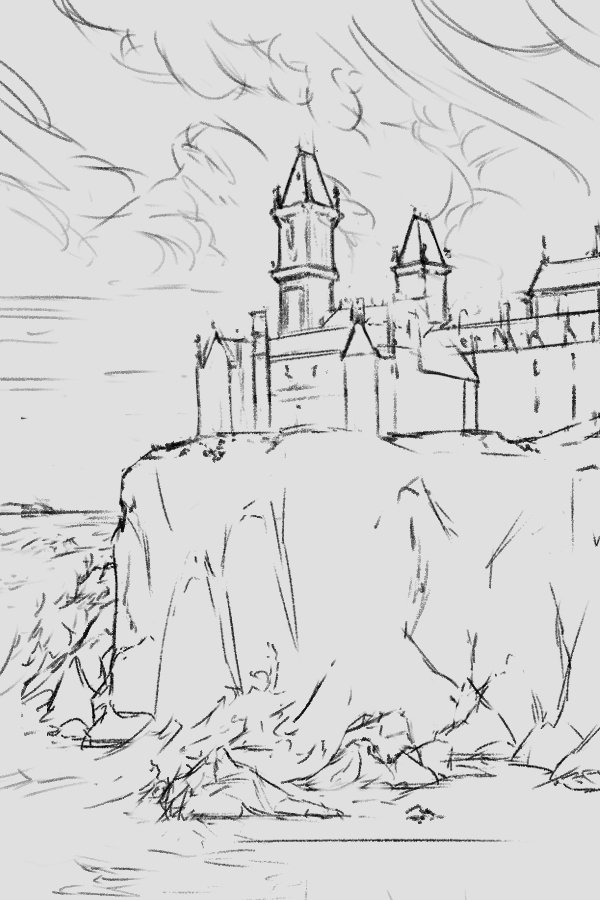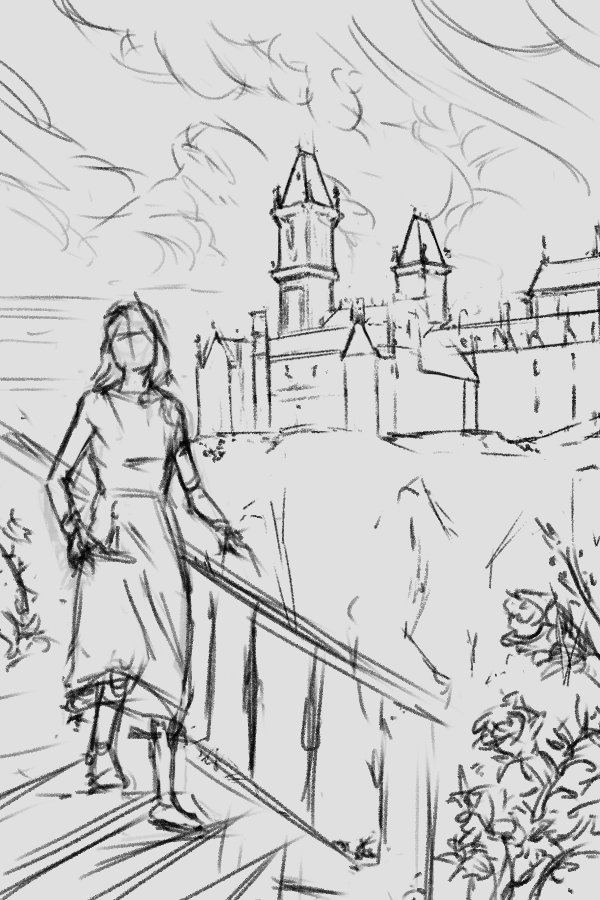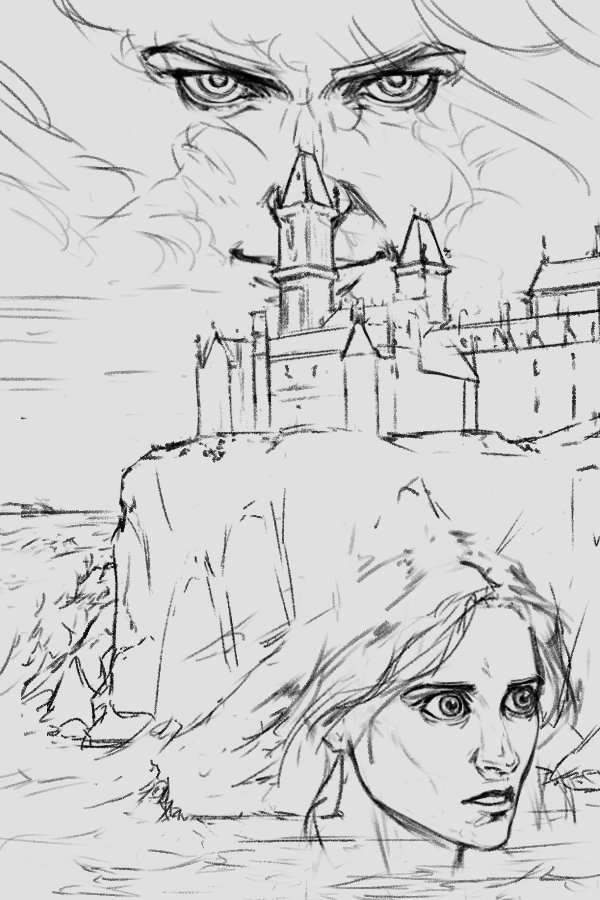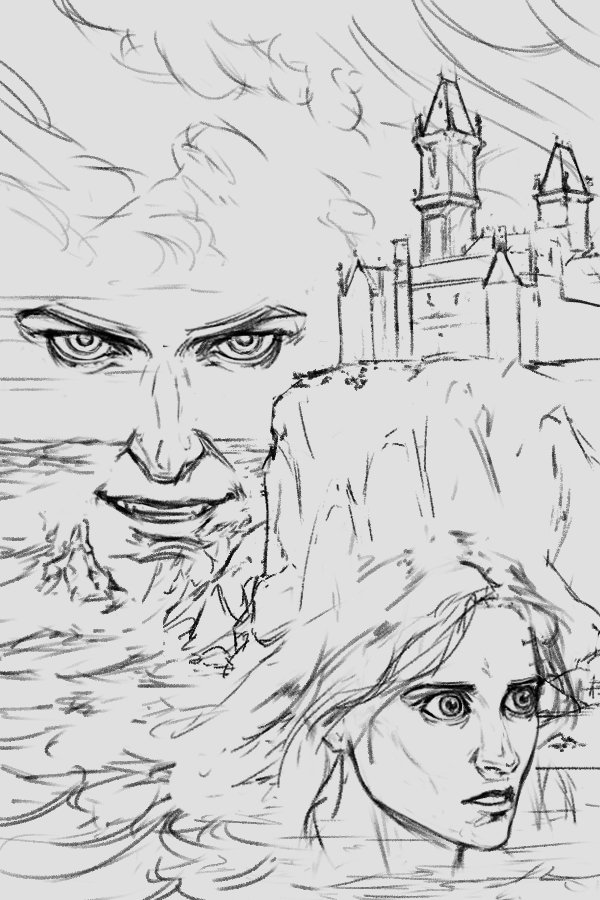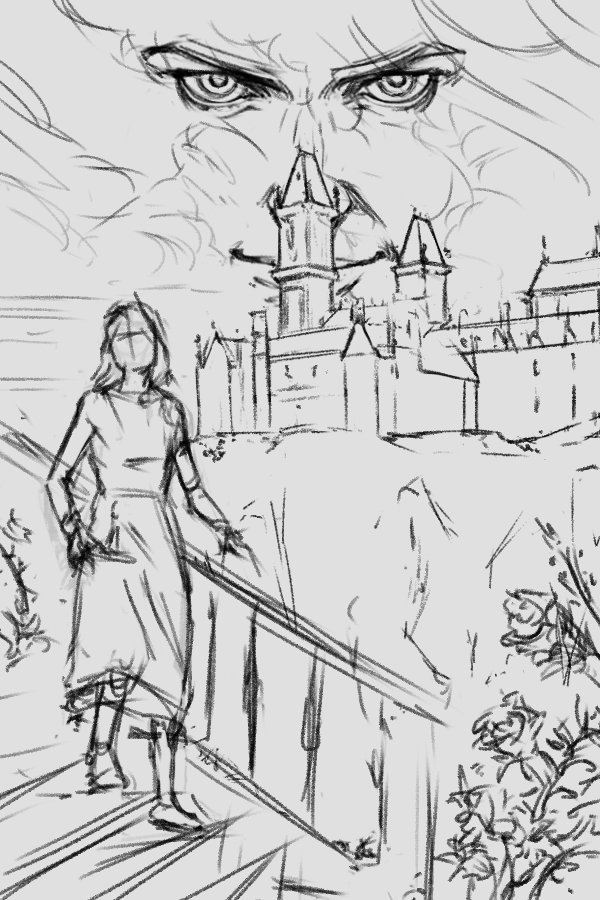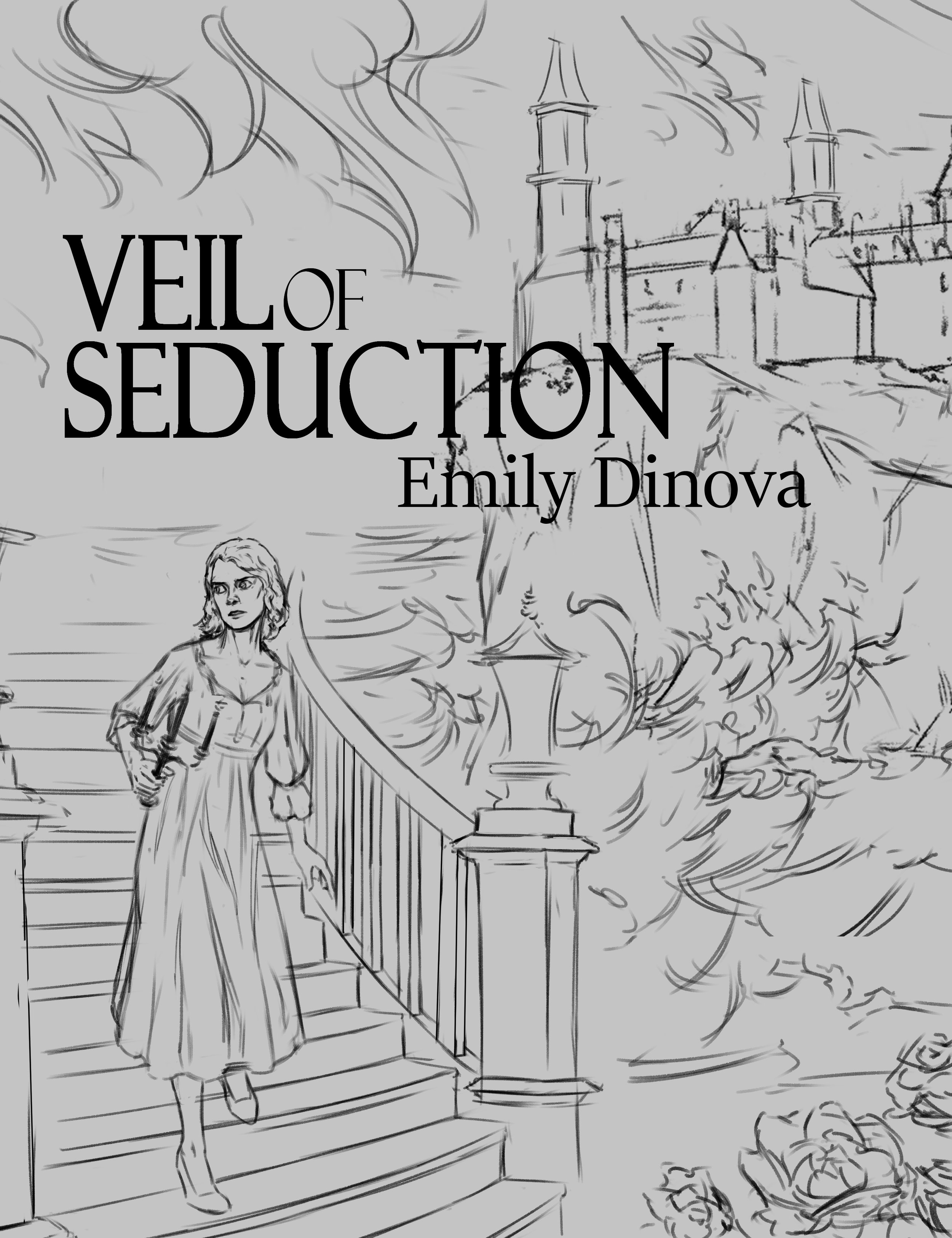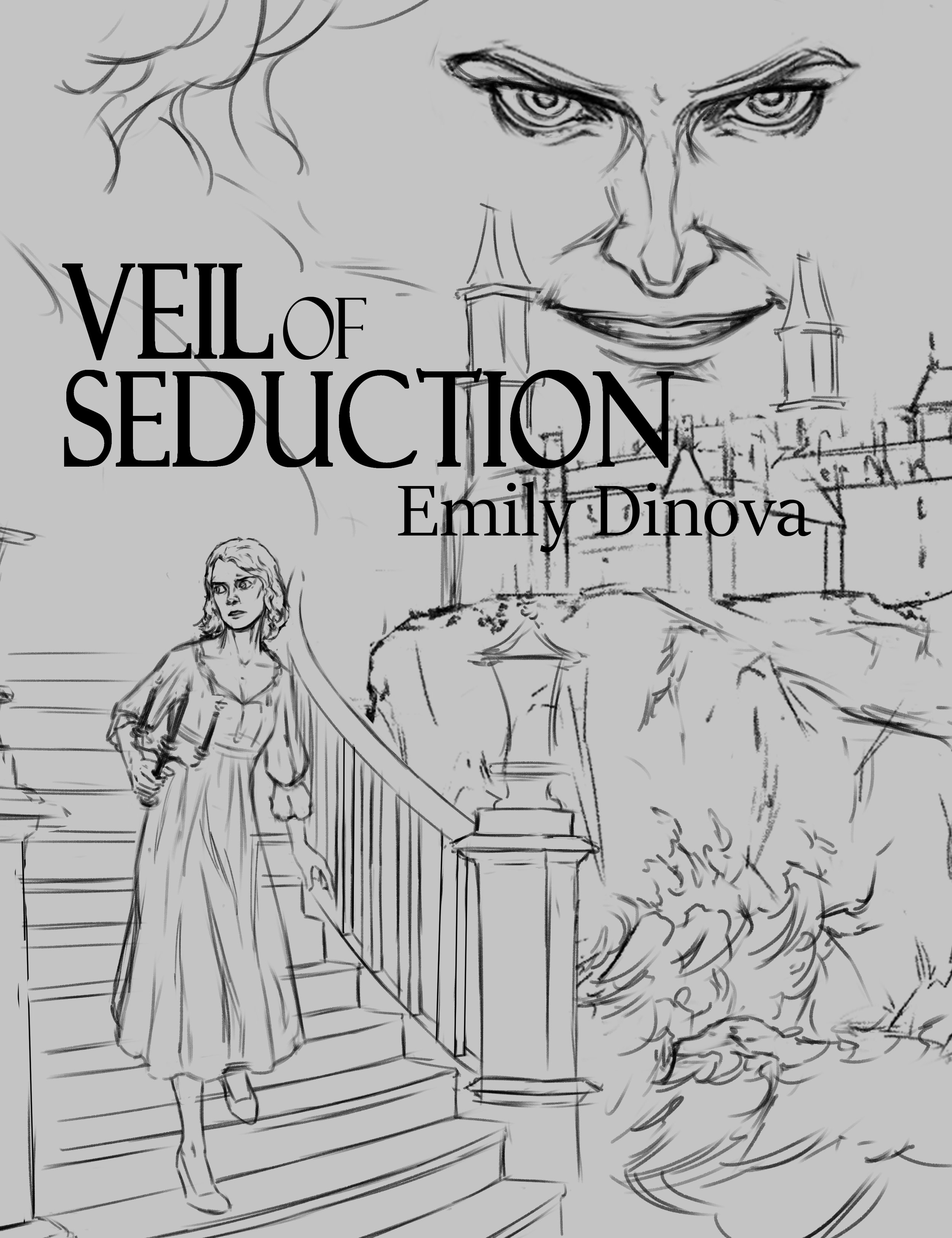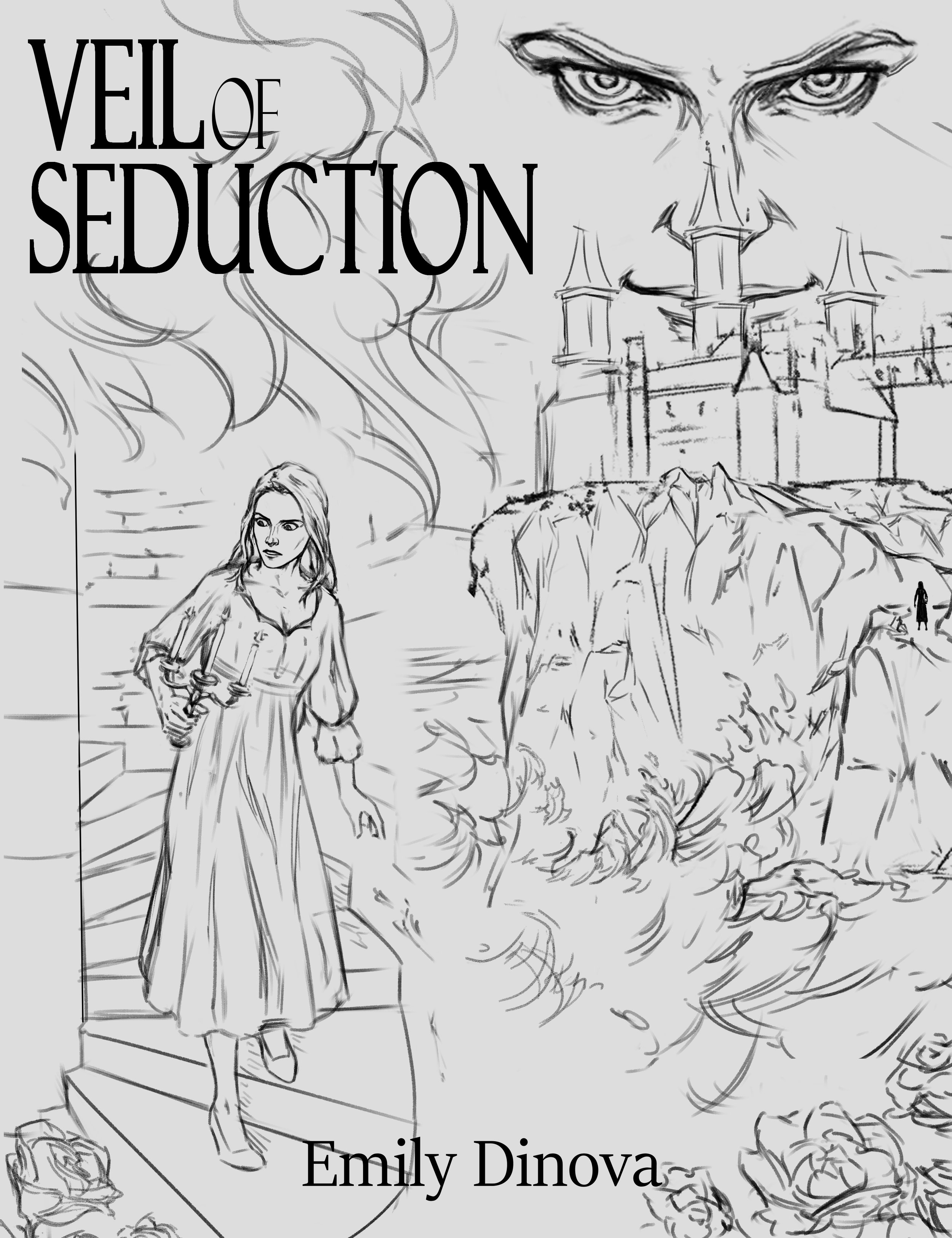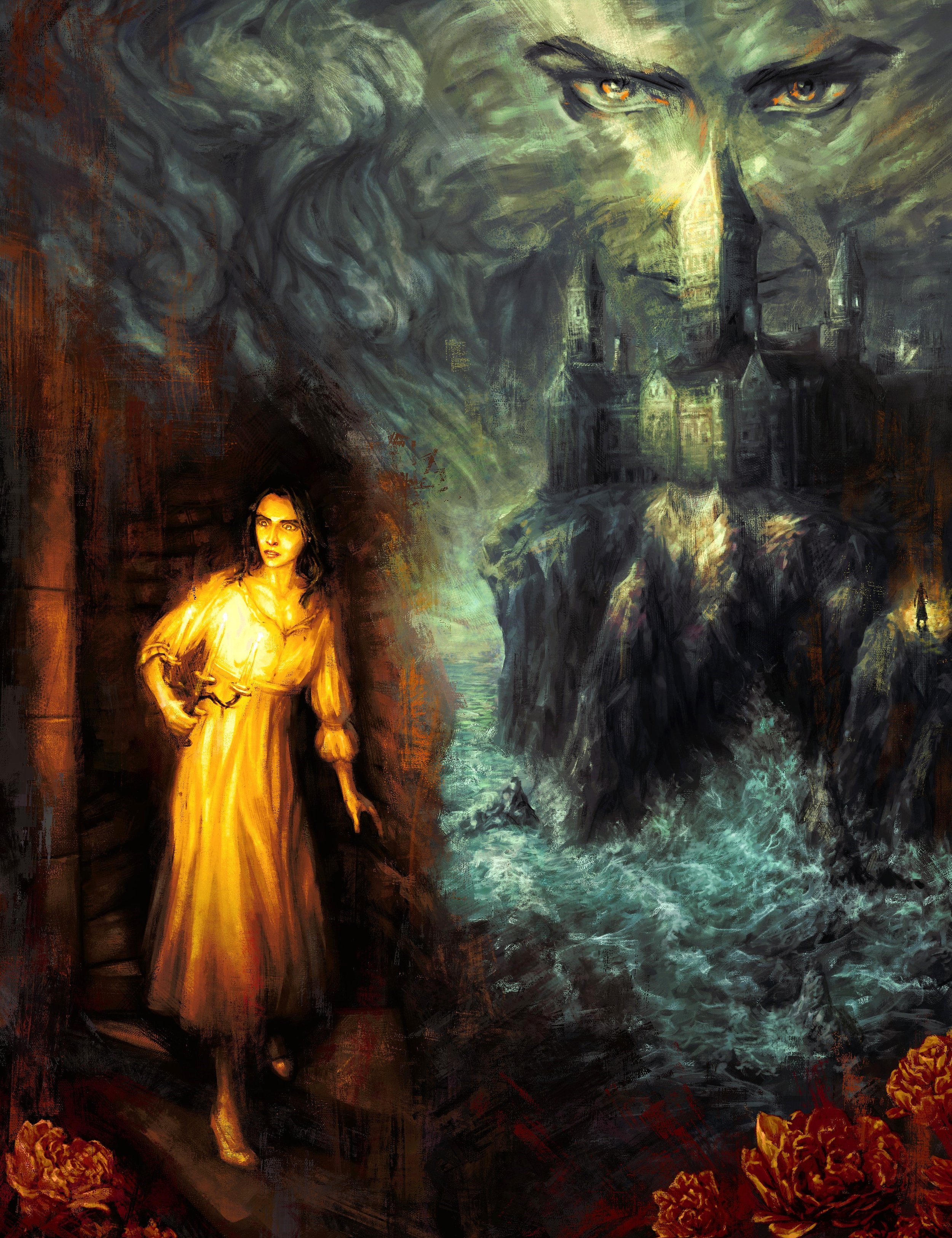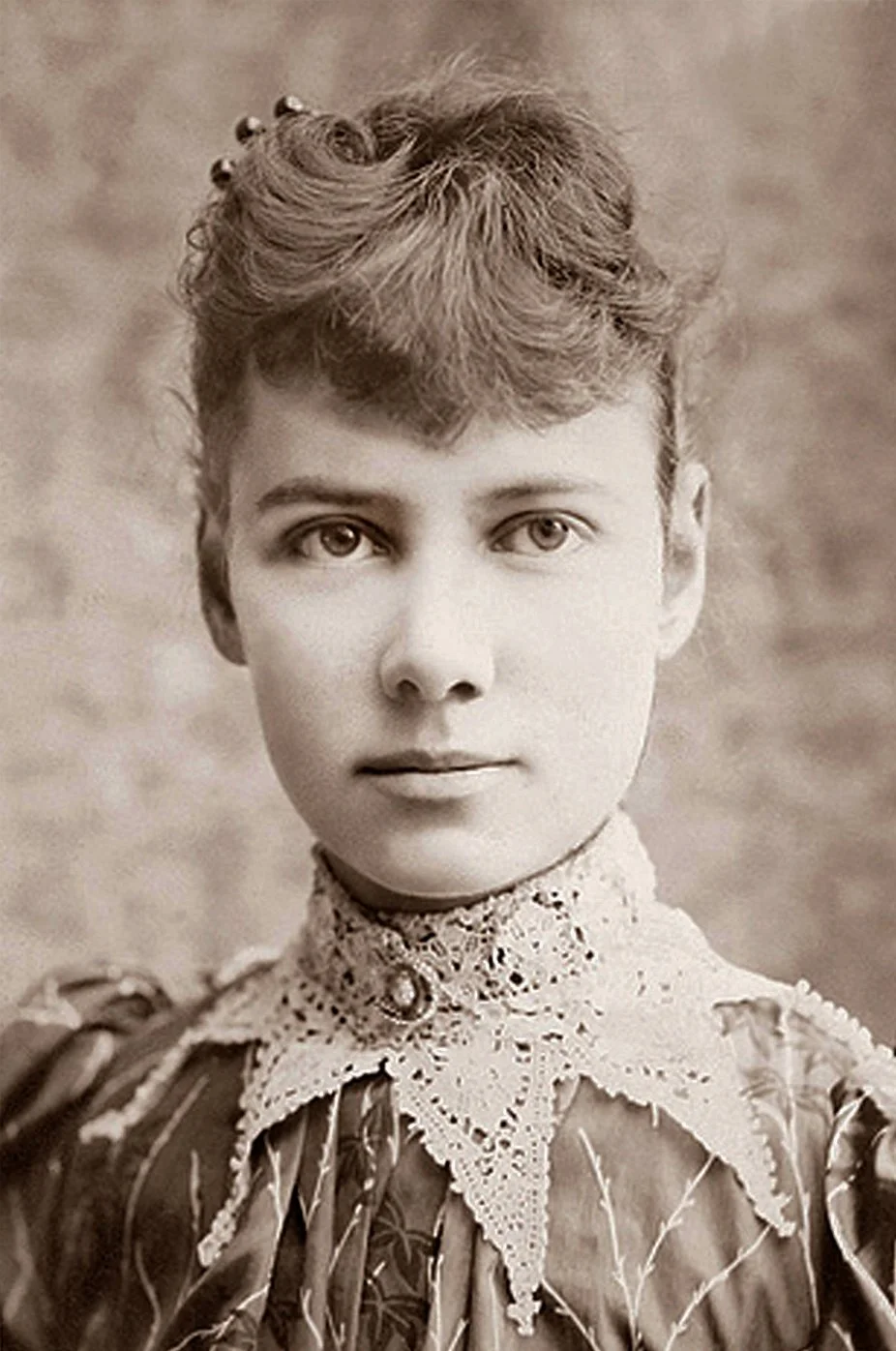Transcript of an interview between fiction writer Dennis Pahl and a character from his forthcoming collection of stories The Museum of Lost Things (Unsolicited Press). The interview took place in the winter of 2024 at an undisclosed location in Queens, New York and before a fully packed auditorium of film buffs, educators, and students of contemporary literature.
Dennis Pahl: Let me first thank Gregory Cioffi for the invitation to tonight’s discussion. Mr. Cioffi, the filmmaker, fiction writer, actor, teacher—I’m not sure how many other hats he wears, a lot I guess...Mr. Cioffi has asked me if I wouldn’t mind contributing to his blog, as he’d always been interested to know my thoughts on the question of adapting short stories into films...my own stories, in this case, which he, Mr. Cioffi, with his prodigious talent, has played a major part in converting into short films. He wanted to know, from the perspective of the writer, what it means to translate a work of fiction into film? What is the process reimagining fiction as film, and how does it alter, if it at all does, the nature of the original story? Does the endeavor have, in the first place, any merit? Or it is always and inevitably doomed to failure, I mean, destined to distort and destroy the original story in the process?
I don’t, of course, mean to sound cynical by asking this last question, nor do I wish to imply that Cioffi, in his filmmaking, has reduced my stories to ashes. No. On the contrary, in many cases Mr. Cioffi’s screenwriting and directing has mainly served to beautifully enhance the stories, even if, on occasion, some distortion of the original story takes place. And I’d argue that it is exactly such distortion of the original that is needed for a successful adaptation. “Destroying” the original is, in other words, not always a negative thing...It means, very often, creating anew, leaving behind the original text and translating it into a new language, the language of cinema: reshaping it according to a new perspective, that of the filmmaker. Out with the old, in with the new? Not entirely, but there is admittedly some degree of destruction along the way. It can’t be helped.
But I’m really getting ahead of myself, am I not? I’d much rather find a way through this puzzle, through the enigmatic re-imagining of fiction into film, by allowing another voice, another being if you will, to enter into the picture. And that voice to which I allude belongs to none other than one of my characters, who has done us the great honor of joining us tonight. That’s right. Who better, after all, to speak on the subject of turning fiction into film than one who is directly involved, who knows the process from the inside—that is to say, a character from my fiction? And not just any character, I should say.
So...without further ado, let me introduce Professor Protivnik, who’s been kind enough to come here tonight for this one-on-one discussion. [Turning to the PP, sitting beside DP] I’m so happy, Professor, you were able to make it here, to be able to temporarily rip yourself away from your usual fictional environment, from the printed page you inhabit, and be with us, on stage, in this wonderful auditorium. Indeed, let me commence by saying what an honor it is to have you, fully present, before such a fine group of film fans and artists and generally anyone else interested enough to come to this event, even if only out of a lack of anything better to do with their time.
Professor Protivnik: Well, the pleasure is all mine. Thank you so much for that warm introduction—and for the invitation in general. I’m equally honored to be here, in front of not only such a welcoming audience but also before my very own author, whose generosity and graciousness cannot be overestimated. Forgive me if I stumble at times, or if I speak in banal clichés. I almost feel as if I’m not in control of my words tonight.
Perhaps it’s a case of nervousness, I don’t know. Let me simply say at the outset how thankful I am that you’ve allowed me to exist in the first place, although I’ve come to feel, after having a role in so many of your stories, that I seem almost to have a life of my own, quite independent of you, my creator. That’s probably what made it in fact possible for me to escape, albeit temporarily, from the pages of the literary text at all. It’s always great, dear friend, to be part of your fictional world. I mean that sincerely. And I’m most happy to discuss the journey from short story to the silver screen, or is it video? Though perilous at times, and even thankless, the journey has been as incredibly illuminating as it has been absolutely joyful. I look forward to many more such adventures, even though, to be honest, no one—neither flesh-and-blood human beings nor fictional characters like myself—can really be sure about the future, can they?
Still of Professor P
DP: No, I suppose they can’t. But let me reassure you that, as far as I’m concerned, you have a wonderful future, at least in my fiction. But to start things off: let me ask you about your character’s debut appearance on film, when you first decided to try your luck on screen, in the film called “Evening Class.” I want to know: Was it difficult? And what did you think of the screenwriter Mr. Cioffi, who rewrote you, reinvented you for the film? Did he treat you well? Or did he, as a screenplay writer, take liberties with your character? Was he as easy-going and caring and sensitive to your needs, as many say? Or was he, like some other screenwriters or directors in the profession, the proverbial pain in the ass? [Chuckles from DP, but at the same time there’s the look he has of being quite serious about the question.]
PP: Actually he was a delight to work with. Except, of course, for those moments when I wanted to kill him. Or to kill the actor who played me. Maybe I wanted to kill the director too, I don’t recall. It’s hard to say where to direct your anger when you’re in the middle of being toyed with so much by others who are not the original author. The film director, whose name escapes me now, was a decent enough fellow, and quite talented too, but he was one who followed quite literally Cioffi’s screenplay. It’s not always, I must admit, an easy transition from page to screenplay. And once you start shooting the film, you can’t help but also think how different the actor is from you. Dan Capalbo, the actor in question, doesn’t even remotely look like me, and yet he does a damn good job in spite of this...
Headshot of Dan Capalbo
DP: Hold on a second. What do you mean he doesn’t look like you? I, as your author, as the original writer of the short story on which the film is based, never even tried to describe what you looked like. So how could you say that about the actor chosen for the part?
PP: No, you didn’t describe my looks, but there’s a feeling, you know, a feeling I get when you put me in the situation, in the fictional situation, and the feeling sort of summons up an appearance, or at least it does in my head. Or in any reader’s head. And no two readers of a work of fiction conjure up the same picture of a character, do they?
DP: Yes. I suppose you’re right about that.
PP: Damn straight I am... And in film, the actor’s appearance, whether you like it or not, fills in the gap for the reader’s imagination. In effect, it kills the imagination once and for all about what the character could possibly look like. It totally limits it. That’s what I meant before about “destroying” the original story. The instant the imagined character is given a face, any face, not just Capalbo’s face, you’ve just interfered with the reader’s imagination and boxed it in, reducing it to one look. One face. Now my character, for all eternity, is the face of the actor’s. The filmmaker, together with the screenwriter, has just killed me for good, for all time, thank you very much Cioffi...
But seriously: the real question, if you don’t mind my saying so, is that of whether the film version “got me right” in other ways. Was it faithful to the tenor of the story, knowing that the genre of film, by its very nature, operates within a whole different sphere, within a whole different field of language from that of the short story? Of course there are limits to film as well, since it cannot always go so deeply into the internal life of a character, never mind the sheer external appearance, the physical look, of that character. I say “it cannot always” do so. Because we know directors, such as Igmar Bergman and Andrey Tarkovsky, great geniuses each of them, who can penetrate just as deeply as any novelist, doing so purely through visual imagery and, sometimes, through dialogue. But let’s be honest: your characters, no hard feelings, are not exactly the deepest. Nor, probably, are they meant to be. I don’t really hold that against you as an author. After all, you’re not attempting to be Henry James, are you? I mean, I’m resigned to the fact that I’m not especially psychologically deep as a character. But at the same time I wouldn’t call myself totally shallow...
DP: How do you even know so much about the art of filmmaking and its history?
PP: How do I know? Didn’t you create me in your own image, at least partly?
DP: I suppose so. Well, in any case, I’m glad you at least understand where I’m coming from as a writer. I just wish I knew where you are coming from as a character, since sometimes I feel as if you do things unexpectedly, without my full knowledge. Sometimes I get the feeling l I can’t always control you. No, you’re not so deep, nor were you meant to be, as you perfectly understand. But there are things about you that even I, as an author, find pretty mystifying. I’m not, after all, some kind of literary critic of contemporary literature, so I wouldn’t be able to tell you half the things a critic would be able to say about you, as I’m mainly, in the process of creating my short stories, simply allowing my unconsciousness, my inner logic, to unwind and go where it will. And there are times, as I set you or another other character in motion on the printed page, I have no idea of what you will do next...
PP: That’s comforting. Thanks for letting me know. Next time I get back to the written page I’ll be sure to consider what you just said and maybe, just maybe, I’ll start to feel a little freer, despite the constraints of all those words, of all that verbal machinery, if you will, with which you end up surrounding me.
DP: Be my guest. Go nuts with your life on the page. It’s no real concern for me. I trust your instincts. Sometimes they are better than mine. But let’s not drift away from the main subject, your transformation onto the screen. Let me pose the question: Do you feel you were well represented, given a faithful portrayal, in the film version of “Evening Class,” a story about a professor of literature whose students one night mysteriously disappear, leaving him, the dedicated instructor, to lecture for two and half hours each Monday evening in front of a completely empty classroom? How did the film version of your life story work out?
PP: Well, it’s always the case, isn’t it, when the director takes the original story and, for whatever reason, whether due to his own whims or creative interests or personal bias, decides to turn the tables, so to speak, and switch everything around. As I feel, Cioffi, the screenwriter here, gave a lot more weight to the character of the janitor, who ends up one evening substituting for me, Professor Protivnik, when I, as the tired professor, hand over my tweed jacket to him and let the janitor just sit there in an empty classroom, covering for me while I sleep in my office...and then, lo and behold, just when the janitor is sitting there, it’s then that all the students who had disappeared suddenly return to the classroom, and he, the janitor, is now stuck in front of a classroom of full of students having no idea what to do, having never taught a class in his life, let alone a class in Western literature.
I thought Robbie Tann did a wonderful job with the role of the janitor. I like the way he acted confused at first about the situation, but then gaining confidence, started to tell to the students his own life stories, many of them quite fantastical, while they stared at him in awe, glued to his every word. Yes, it was a nice touch in your original story, but for some reason, in the film version Professor P ends up like a big bore, a tedious professor in comparison to the dynamic fabricator of stories, the janitor, who wins over the students totally. Personally, from my own perspective as an instructor, as Professor Protivnik, I was a bit offended. I felt I did not get the sort of respect as a lecturer that was granted to me in the short story. Nor did I think the students were represented in the most balanced way, as foolishly inept, lazy, unambitious and easily conned by the janitor. The students, in the short story version, were plainly satirized just as much as the old style professor, myself. But for some reason the screenwriter for the film, Cioffi, seemed to identify with the students, as if he were himself a sort of student of Professor P’s. Let’s call it the bias of the filmmaker, a personal bias of which he may not even have been conscious: it’s amazing how this can help transform the whole meaning of the original short story.
DP: Are you saying the director purposely manhandled your short story and twisted it in directions you did not intend?
PP: Well, I wouldn’t put it that way. But give me a break. I don’t think I’m as tedious and tiresome a professor as some might make me out to be, or as the film makes me out to be, and certainly I’m not as pedantic either. And yet that’s how the film version ended up, at least in the minds of some audiences—student audiences, I should add—that went to see it. All of them were cheering along with the students portrayed in the film, cheering, that is, for the janitor. And few were aware of how both the janitor, with his lunatic-like but entertaining stories, and the unserious students, were meant to be objects of satire, of mockery, in the original short story. By the way, wasn’t Mr. Cioffi, the screenwriter, once a student of yours? I think I heard that somewhere.
DP: In fact, he was. But that was a lifetime ago, and as I recall he rather enjoyed my courses, all of them. So the suggestion that he was biased in favor of the students just doesn’t hold water, as far as I’m concerned. Now, I wonder if we can we just change the subject perhaps...
PP: Yes, that’s just like you—to want to change the subject and pay no attention to my humiliation on the silver screen...but this isn’t the time, I guess, for personal grievances, so let’s just, as you say, turn to another topic, shall we?
DP: I’m glad you see it that way. For a moment I thought you were going to lose your temper, right on this stage, right in front of this otherwise welcoming and altogether attentive audience, and that would be such a shame. But I know you better. And if the next film where you played a part is any indication, I’m all too aware—and why shouldn’t I be, as your author—of your penchant for getting a little excitable while, at the same time, having the good sense and innate wisdom to contain that quick temper of yours and act in a completely rational, sober way. Especially when you’re put to the test...
Now, speaking of this other Cioffi film project, the one to which I just alluded, “The Museum of Lost Things,” let us know, would you, something about that. This is the film where you, Professor P, now simply called P., are given the chance to explore the more personal, as opposed to the professional, side of your character. Here, to allow the audience some idea about the story, your character has a big role to play in the “inside story” of the general plot. Here, yours is a love story, a story of forbidden, adulterous love, far removed from the world of the classroom, although it’s possible you had originally met the young married woman you end up having an affair with in the very classroom you taught in “Evening Class.” Is that right?
PP: Not really. If you recall, if you were paying any attention at all—even to your own story—all those students of mine completely disappear in both the written story and the more or less (probably less) faithful film. I’m surprised you can’t remember your own plots.
DP: Well, that’s why, I guess, I have you tonight—to remember for me.
PP: Okay. Whatever. As it occurs to me now, that theme you have, the one about disappearances: it’s one you often play with, isn’t it? Isn’t it a running motif, a recurrent issue for you? Very interesting, I find—just as long as you don’t make me disappear.
DP: Why would I? You’re practically indispensable to me. And as for the theme: yes, I do indeed have a certain theme that keeps recurring in my fiction. It’s that of losing things, of things suddenly slipping from our grasp, going oddly missing, the past fading away, losing pens, umbrellas, loose change, friends, lovers, you name it—it’s a motif I’m always coming back to in my collection of stories, named after the title piece “The Museum of Lost Things.”
PP: Yes, I heard, though word of mouth, the whole collection is being published by Unsolicited Press, is that right? Congratulations! It’s about time. I’ve been waiting a hell of a long time to reach a wider audience, no disrespect to the present audience. I just think it never hurts to get acquainted with more people, more readers who could possibly interpret me, dig a little deeper into my stories, find out that I have potential... Perhaps it will take a literary critic, ultimately, to get to the bottom of my life. Perhaps I’m more profound as a character than you think. Who knows? Anyway, I’m glad your manuscript has finally found a home. It may give me a new lease on life.
DP: Thank you very much. Now...getting back to “Museum”: Were you able to enjoy the film version? Did you find that it did justice to the original story?
PP: Justice? It did more than justice. And did I find it enjoyable? Not sure what you mean by that question. Are you asking me if I enjoyed your story about having me lose the girl and bury myself in the throes of depression? Would you find that enjoyable—and then to have it done to me again, repeatedly, on screen? Do you think I’m some sort of masochist? How many others would enjoy that?
DP: Wait a second. Did you forget something? You realize that you’re only a character in fiction.
PP: Okay, you’re right. Sometimes I forget. Sorry. So...what you want to know, basically, is whether my character in the film was faithful to the original story. Is that it? [DP nods his head.] Knowing I’m kind of an unfaithful character to begin with, at least as you make me out to be, a kind of foolhardy adulterer in the story—I guess I can say I’m faithful to that role: faithful to the role of the unfaithful husband who finally deserves what he gets in the end. I think Dan Capalbo, who plays me again in this film, is a more than capable Professor Protivnik. (Despite his not exactly resembling me.) In fact, he’s almost a perfect fit for the character of the story, especially in terms of his portraying the personal side of P’s life, not just his academic life. He looks pretty beaten down in the film version, and I almost feel sorry for the guy. He definitely wins my sympathy. First he’s beaten down in the classroom; now he’s beaten down by a love affair gone awry. And the actor looks it all over. It’s written all over his face. Actually, when I think about the actor who plays me, I almost feel better about myself, about being a character rather than a real human being. Just looking at the poor guy, this actor, in that role doesn’t make me at all envious of the lives of real people.
The main character in the story proper, the frame story—as opposed to the “inside” story where P is developed—is also quite interesting, and few perhaps would know, even if it’s partially indicated in the story, that while he is not given a name, he is really me in disguise. Or let’s say another version of me. As portrayed in the short story and in the film version, P. is just a projection of the main character who one day wanders into an obscure museum in downtown New York and finds there, in each of the exhibition rooms, all the things he’s ever lost in his life—things such as books he mislaid, umbrellas he lost, hair that’s no longer on his head, and a love that somehow got away... Yes, this guy is also me, though not named as such. You were pretty clever about disguising me, though some people, some discerning readers will guess right away.
DP: I’m glad you’re sharing that secret with the rest of the audience. It’s true, I’ve given you a double part to play, and I think in doing so I’ve added another dimension to your character. You’re not just the serious professor. You’re also the foolish romantic who falls hopelessly in love, thinking he can retrieve not only his lost past but also his lost love as well. How mistaken you are.
PP: I guess you modeled me, at least partly, on some of those romantic fools walking around in novels by Vladimir Nabokov and Thomas Mann, is that right?
DP: A good guess. You’re pretty astute.
PP: What do you want? You made me a literature professor. I’m supposed to know something about that world, am I not? And I’ve read more books than you can probably imagine. One day, in one of your works of fiction, you’re probably going to have me write a book, you’re going to turn me into a writer, and then I’ll know something about what it’s like to be you. But then you might have to worry I could replace you... I could end up inventing you, instead of it being the other way around. Wouldn’t that be something?
DP: Well, I don’t think there’s a chance of that happening. But it perhaps shows that you have more depth, and more potential, than I give you credit for. So let me ask: If you fancy yourself so literary, and you happen to be the alter ego of the narrator-writer in the “Museum” story, what is it about the film version of the story, I’d like to know, that you find most interesting or different? Can you elaborate on that a little?
PP: As you know, the main character in “Museum,” besides being literary, also has a fascination with classical music, and the rich musical score of the film, especially the use of Chopin preludes and some of the piano sonatas and string quartets of Shostakovich, gives a haunting quality that underscores the mood you were, most probably, trying to create in the story. I felt, in this story, closer than I’ve ever felt to music. Actually, before this story, I never knew I had any musical inclinations whatsoever. And the film only helped to enhance this in my character. Would you agree?
DP: Most definitely. And that’s, as I think of it now, most likely where the short story genre falls short in comparison to the film version. Just to add my own two cents, if you don’t mind. How can literary art, literary prose even begin to compete with the richness of mood established by such a musical score? Only in film it seems possible. Indeed, the short story, however much it wants to, will never approach the sense of musicality it longs to achieve. God knows I’d kill to be able to invest the written work, my own short stories, with music, and yet as much as I try to do so in the phrasing of certain sentences, in the overall rhythmic pulse of the prose, it never really lives up to that ideal. That kind of musicality can only truly manifest itself in a film production, no?
PP: Early on, there’s a staircase scene, with a long spiral staircase leading down into the depths of the museum, and here is a scene that was not in the original story but only added later, after the film was made. The scene is filled with music. And the richness of that the background music lends, I think, some added depth to the character, if I don’t mind saying so myself. I’m glad you used some of those visual elements later on, when you revised the story. The mood of that particular setting, together with the music, is chilling, I think.
DP: Yes, filmmaking offers, at times, the possibility of developing an interesting, no, a fascinating relationship with the original short story—which can, after filming, be re- imagined and revised to include elements, or even whole scenes, from the film that had never existed in the story from the beginning. Indeed, the relationship between film and fiction can be that close, each one giving birth to the other, and being in effect the springboard for further invention. And so I ask: How did you enjoy your alter ego’s new scene in the short story (made after the film), with that walk you take down that haunting and harrowing staircase?
PP: For me, it was extra special. I couldn’t imagine how well scenes from the film could then be readapted to the short story. These scenes could never, perhaps, have been imagined before the film was made. The revision of the short story, remade from scenes in the film, is like turning the story inside out. Which one is the adaptation, the story or the film? It’s a bit dizzying, if you ask me. Like going down that long, never-ending spiral staircase. Just thinking about it makes my head spin. And of course the whole idea of it captures the essence of the labyrinthine structure of your story, I think. Correct me if I’m wrong.
DP: No, you’re onto something. It never occurred to me before this moment. I suppose the director, Cioffi, would be happy to hear it.
Still from “The Museum of Lost Things”
PP: Another thing about the film is the way the main character, the guy who walks into the museum, is telling the whole tale of his adventure to a waitress in an all-night diner. In the story version, the main character—a version of me, let’s not forget—is all by himself, as a narrator, explaining to the reader how he stumbled one day upon this strange museum no one has ever heard of before, a museum that, as it turns out, is totally devoted to his own life and all the things he’s ever lost, which includes, among other things, a long-forgotten manuscript, a love story he once wrote and abandoned, a story that eventually comes alive as the “inside story” about P and his romantic longings... Funny, but I never thought of myself as the romantic type until this story came along. And I guess I am a kind of writer after all, just like you. The film version created something new, but also something that was the same, if that makes any sense. I have to tell you, I almost felt like a different person after the film version, and yet it was all so familiar too.
DP: Isn’t that experience you just described what Freud once referred to as the phenomenon of “the uncanny”? You know: where the familiar suddenly turns strange, like when you stare for a long time at a familiar picture, and then after a while the picture begins to break up in your mind, right before your eyes, and you begin only to see pieces, fragments—a nose here, a chin there, a certain expression in the eyes—and now what had been familiar is all de-familiarized, strange, other. Is that a person anymore you’re looking at, or is it, you wonder, a strange and foreign object?
PP: Freud? The uncanny? How am I supposed to know such things? I’m only a character in fiction... You want me to be a philosopher as well? Look, I know you’ve tried to explore more aspects of my character in other works, even at times going into my domestic life—one of your stories, for example, being about my relationship with my French-speaking dog Henry who in the story becomes, of all things, a “person of interest,” as it were, a kind of suspect in connection with a heinous crime committed right outside by apartment window, on the street below. Cioffi even made a short film about it called “A Bite Out of Crime.” I’m not sure how it was received, or if anyone saw it. And then there was the other story, a very short one, where you had me searching, hopelessly, for a lost coin all over the floor of my apartment. I almost destroyed my knee in the process, thank you very much, Mr. Author...
You know, with all due respect, and no ill intentions, I’ve had enough of answering any more questions for now... I think I’m done. My character, truthfully, is just not used to so much introspection and self-analysis. It’s pretty tiring, I must confess. So, if it doesn’t seem too horribly abrupt or discourteous, and if you don’t mind so very much... [Here DP, looking a bit embarrassed and taken a little off guard, waves awkwardly to the audience, signaling that the discussion, being videotaped, will have to come to a conclusion, at least for the time being, and be picked up, perhaps, at a later date... The audience, generous, warm, and not suspecting of anything having gone amiss in the program, shows its good-natured appreciation with a hearty round of applause. Smiles and nods from DP and PP, who turn and shake hands, bidding each other and everyone else a fond farewell. Until next time.]
Dennis Pahl,
who lives in Kew Gardens, New York, is a professor of English at Long Island University. He has published many scholarly articles on nineteenth- century American literature and his short stories have appeared in such literary journals as Confrontation, Epiphany Magazine, Vestal Review, The Absurdist Magazine, New Feral Press, and JONAH Magazine. He was chosen as a finalist for the 2023 Calvino Prize in Fabulist Fiction, and his collection of short stories, The Museum of Lost Things: Stories (Unsolicited Press), will be forthcoming in 2026. Some of his works of fiction have, with the help of screenwriter-director Gregory Cioffi, been adapted into award-winning short films.
G&E In Motion does not necessarily agree with the opinions of our guest bloggers. That would be boring and counterproductive. We have simply found the author’s thoughts to be interesting, intelligent, unique, insightful, and/or important. We may not agree on the words but we surely agree on their right to express them and proudly present this platform as a means to do so.





















